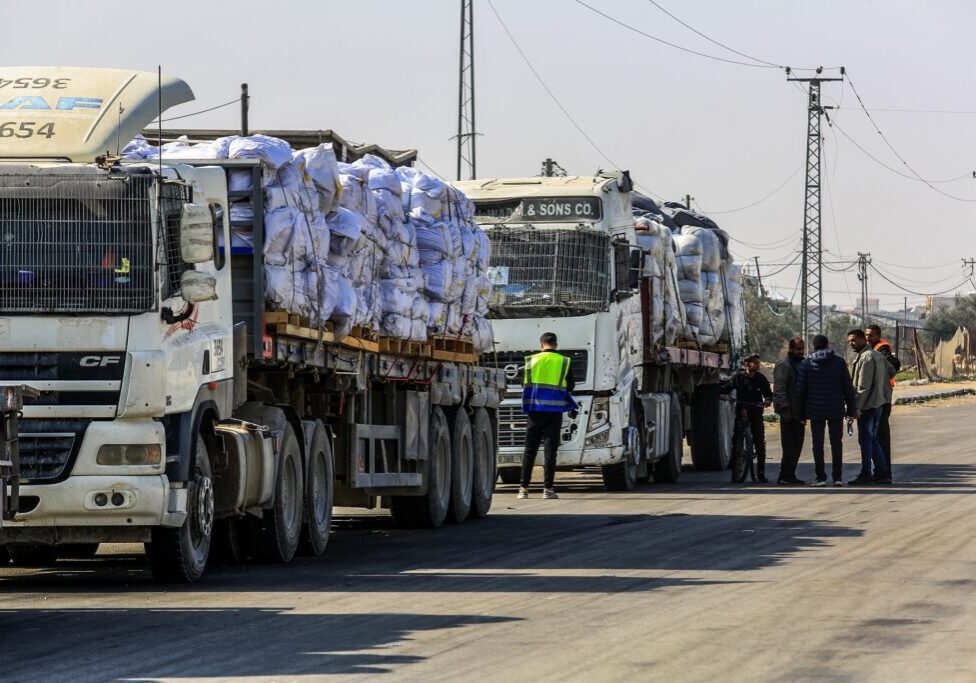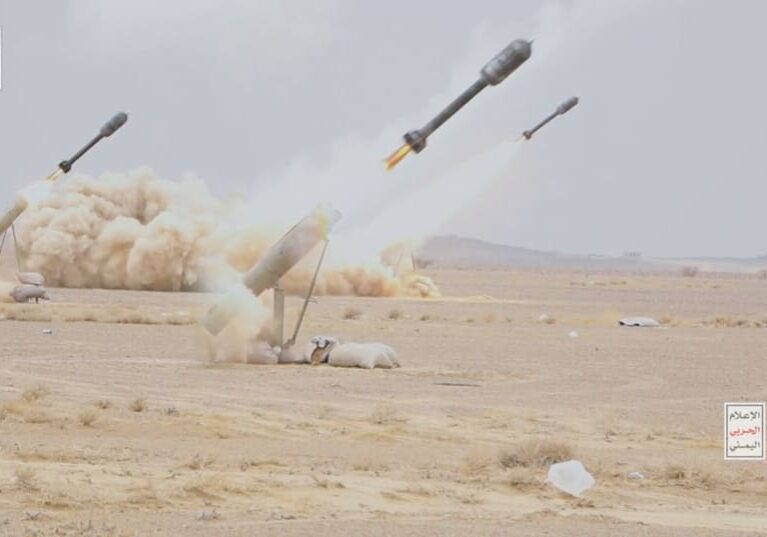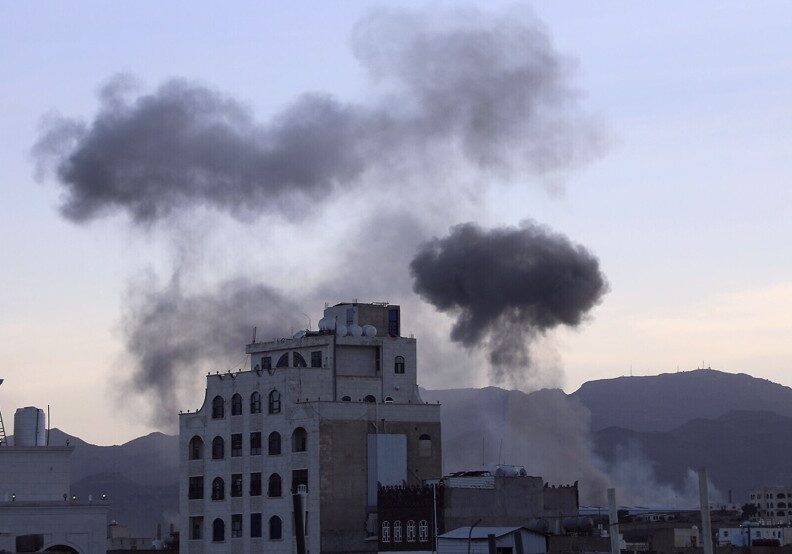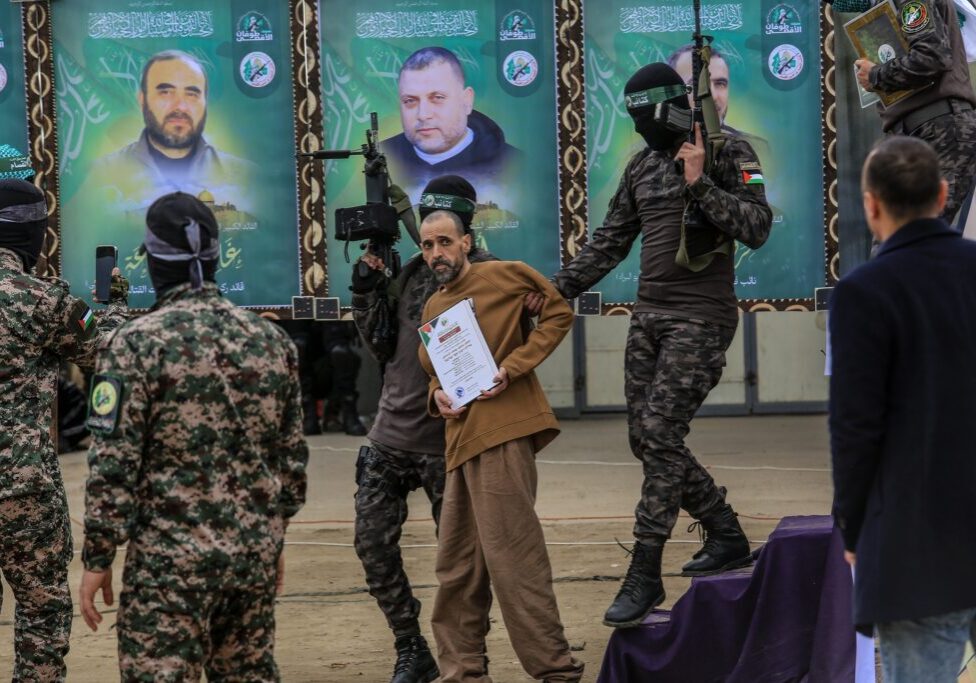Australia/Israel Review
Deconstruction Zone: Lebanon’s Destabilising Fiction
Feb 6, 2018 | Evelyn Gordon

If I were compiling a foreign policy wish list for 2018, high on the list would be ending the fiction that Lebanon is an independent country rather than an Iranian satrapy governed by Iran’s foreign legion, Hezbollah. The Western foreign policy establishment maintains this fiction out of good intentions; it wants to protect innocent Lebanese from suffering the consequences of Hezbollah’s military provocations against its neighbours. But this policy has enabled Hezbollah to devastate several neighbouring countries with impunity, and it’s paving the way to a war that will devastate Lebanon itself.
Sheltering Lebanon from the consequences of Hezbollah’s behaviour is both a bipartisan and a transatlantic consensus. This was evident from the West’s wall-to-wall outrage in November, when Saudi Arabia abortively tried to end the pretence that Hezbollah doesn’t rule Lebanon by pressuring the organisation’s fig leaf, Prime Minister Saad Hariri, to resign. The International Support Group for Lebanon, which includes the US, UN, European Union, Arab League, Britain, France, Germany, Italy, China, and Russia, issued a statement demanding that Lebanon be “shielded from tensions in the region.”
Yet the West has shown no similar concern for shielding the many Mideast countries which Lebanon’s de facto ruling party has destabilised for years. Thousands of Hezbollah troops have fought in Syria’s civil war, helping the Assad regime to slaughter hundreds of thousands of its own citizens. Hezbollah also has troops in Yemen to support the Houthi rebels in that country’s civil war, and it may have been involved in firing missiles from Yemen at Saudi Arabia. It has trained Shi’ite militias in Iraq and fought alongside them. And, of course, it has built an arsenal of some 150,000 missiles – bigger than that of most conventional armies – for eventual use against Israel.
Granted, Hezbollah isn’t Lebanon’s official ruling party; it’s part of a coalition government led by Hariri, who actually belongs to a rival party. But not only does Hezbollah have official veto power over all government decisions, it’s also the country’s dominant military force. Hariri has no power to stop Hezbollah from sending its troops all over the region; he can’t even stop it from doing as it pleases within Lebanon itself.
One small example perfectly illustrates his impotence. In early December, Qais al-Khazali, the head of an Iraqi Shi’ite militia, was videotaped accompanying Hezbollah operatives to the Lebanese-Israeli border and proclaiming his militia’s willingness to help Hezbollah fight Israel. Hariri termed the visit a “flagrant violation” of Lebanese law and ordered the Lebanese army to make sure no such incident recurred. A few weeks later, as if to underscore Hariri’s powerlessness, Hezbollah took another senior commander from a Syrian Shi’ite militia to the border for a similar videotaped pledge.
Yet despite the overwhelming evidence to the contrary, the West has insisted on maintaining the fiction that Lebanon is somehow independent of Hezbollah.
Thanks to this fiction, the West gives hundreds of millions of dollars in both civilian and military aid to Lebanon. Civilian aid, of which the EU has provided over US$1 billion in recent years, frees Hezbollah of the need to pay for the consequences of its actions, like caring for the 1.1 million Syrian refugees its own aggression helped drive from Syria into Lebanon. American military aid, of which Lebanon is the world’s sixth-largest recipient, has given Hezbollah access to training, intelligence, equipment and other military capabilities, since the Lebanese army shares everything it receives with the organisation, whether willingly or under compulsion from Hezbollah’s greater strength.
This Western policy is liable to boomerang on Lebanon itself. Serious observers currently rate another Hezbollah-Israel war as somewhere between likely and inevitable. And because Hezbollah has 150,000 rockets pointed at Israel’s civilian population, Israel would have no choice but to employ maximum force to end such a war as quickly as possible. Against a threat of that magnitude, protecting its own people would trump any international pressure for “restraint.”
The result would be massive civilian casualties, given Hezbollah’s habit of embedding troops and weapons in urban areas, as well as the destruction of Lebanese infrastructure, which Hezbollah uses to move and resupply its troops. In short, Lebanon would be devastated.
The only way to prevent such a war is to reverse the Western policies that have enabled Hezbollah to grow to its current monstrous proportions. This means exerting massive pressure on Hezbollah, even if it also hurts Lebanon. Such pressure should include targeting Hezbollah’s drug trade and sanctioning Lebanese banks that handle its finances.
Several decades of “protecting” Lebanon have only strengthened Hezbollah. It’s long past time to acknowledge that Lebanon is a fully-owned Iranian subsidiary and to treat it accordingly – not only for the sake of Lebanon’s neighbours but for the sake of Lebanon itself.
Evelyn Gordon is an Israel-based journalist and commentator. © Commentary magazine (www.commentarymagazine.com), reprinted by permission, all rights reserved.






